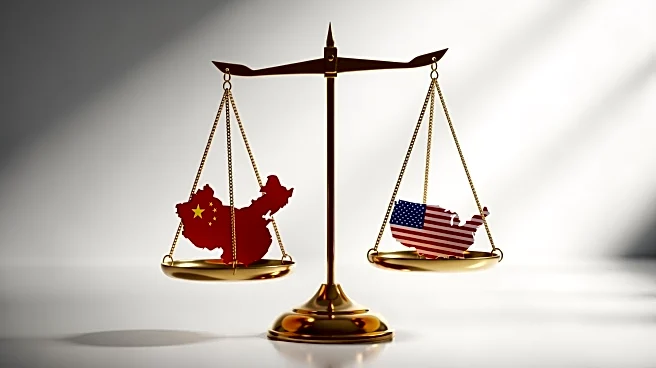What's Happening?
China's economy has experienced its slowest growth in a year, with a 4.8% increase in GDP during the third quarter, down from 5.2% in the previous quarter. This slowdown highlights the challenges Beijing
faces in navigating a global trade war while trying to boost its domestic economy. The data was released as Chinese leaders convened to set the national agenda for the next five years. The trade tensions with the United States have significantly impacted China's economic performance, with exports being a rare bright spot. However, domestic demand remains weak, and property investment has plummeted by nearly 14% in the first three quarters of the year.
Why It's Important?
The slowdown in China's economic growth is significant as it underscores the broader impact of the trade war with the United States on global economic stability. The trade tensions have led to increased instability and uncertainty in international trade, affecting not only China but also global markets. The U.S. and China are two of the world's largest economies, and their trade relations have far-reaching implications for global supply chains and economic growth. The ongoing trade war could lead to further economic disruptions, affecting industries and economies worldwide.
What's Next?
Chinese leader Xi Jinping is expected to meet President Trump at the Asia-Pacific Economic Cooperation forum in South Korea. This meeting could potentially lead to discussions on easing trade tensions. President Trump has indicated a willingness to lower tariffs on China, contingent on reciprocal actions from Beijing. However, the situation remains tense, with the U.S. threatening additional tariffs if China does not comply with certain demands. The outcome of these discussions could have significant implications for future trade relations and economic policies between the two nations.
Beyond the Headlines
The trade war has prompted China to focus on economic security and high-tech development, including sectors like artificial intelligence and robotics. This shift could lead to long-term changes in global technological leadership and innovation. Additionally, the trade tensions have highlighted the vulnerabilities in global supply chains, prompting countries to reconsider their economic dependencies and strategies.










